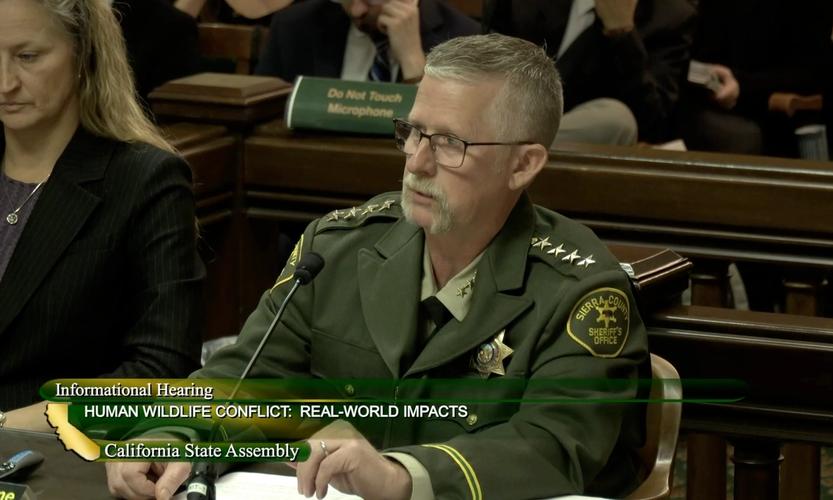“Housework can’t kill you but why take a chance.” – Phyllis Diller This month’s article is to inform you that housework can make you sick if not done properly. What I am talking about is cleaning up after rodents that may have taken up uninvited residence in your home. You could put a virus (hantavirus) that they carry into the air that people breath in and become sick or even die. In California, deer mice carry Sin Nombre virus which can cause Hantavirus Pulmonary Syndrome in people. Statewide, approximately 12% of deer mice are infected with this virus. Infected deer mice shed this virus when they defecate or urinate, presenting a potential risk to humans. The California Department of Public Health Vector-Borne Disease Section makes the following recommendations when cleaning rodent contaminated areas of your home, garage, vehicle, or other enclosed space. Do not vacuum or sweep rodent contaminated areas. This can stir up virus that has been deposited by mice in their feces and urine. For structures that have not been opened for significant periods (e.g., seasonally occupied buildings): open windows and doors of a potentially contaminated area and allow it to air out for at least 30 minutes before cleaning. Wear latex or rubber gloves and eye protection. Use a 10% bleach solution or commercial disinfectant (formulated to kill viruses) diluted according to label instructions (bleach solutions should be prepared on day of use as they lose efficacy over time) to spray rodent carcasses, nests, droppings, and other potentially contaminated items and surfaces. Allow disinfectant solution to sit for 5 minutes, or according to label instructions, before cleaning with a mop or sponge. When clean-up is completed, rinse gloves with disinfectant solution before removing. Remove gloves, dispose in garbage, and thoroughly wash hands with soap and water. Contaminated items that cannot be disinfected (e.g., paper, wood, fabric) should be carefully set outside in the sun for several hours (direct sunlight kills hantavirus). The best way to prevent exposure to rodent-borne disease like hantavirus is to prevent an infestation by removing food, water, and nesting sources. Check around your house for gaps or holes. Mice can fit through a hole the size of a pencil (1/4 inch). Seal up any holes you find. You can find supplies at the hardware store that will keep them out. Call a professional pest control company for areas that cannot be reached. Clean up after yourself and your pets every time. Do not leave food or water bowls overnight. Put things away in sealed containers. Outside, keep things like trash and animal feed in containers with tight fitting lids. Eliminate areas that may house rodents (sheds, old cars, woodpiles) or move away from the house at least 100 feet. Raise woodpiles and store items in sheds at least 6 inches off the ground. Remove brush and weeds and keep shrubs and grass maintained. Snap traps are the recommended way to remove mice if they are currently in your home. DO NOT USE glue traps or live traps. They increase the risk of you becoming sick. If you plan to reuse the trap, place everything (mouse too) into a bucket of disinfectant for 5 minutes. With your rubber gloves on remove the rodent into a plastic bag. Rinse off the trap and let dry completely. Tie bag with rodent and put into another bag and throw away. “Last night my son saw a mouse in the kitchen, so he wiped down all the counters and cleaned everything....” – Tonight, I’m putting the mouse in the bathroom Referenced: How to Clean Up After Rodents | Healthy Pets, Healthy People | CDC Take care of yourself, Nurse Deb
Featured Articles

Assembly Committee Probes Predator Conflicts in Rural California →
January 28, 2026
Lawmakers, ranchers, and environmentalists debate safety, stress, and non-lethal strategies for managing predators.
Wolf Depredation of Pregnant Ewe Renews Concerns in Sierra Valley →
January 26, 2026
State Senate Bill Would Require Assessing Health Impacts from Wildfire Smoke →
January 27, 2026
California Joins WHO Global Outbreak Response Network →
January 23, 2026
DIG Announces New Leadership After Founding Member Retires →
January 29, 2026